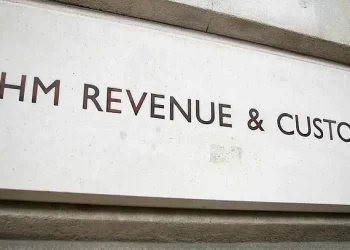The UK government has introduced a new welfare reform bill aimed at enhancing financial security for nearly 4 million households through increased Universal Credit rates, while providing protections for severely disabled individuals.
This legislation seeks to balance compassion with fiscal responsibility, addressing rising costs and claimant numbers.
Income Boost and Protections
The Universal Credit and Personal Independence Payment Bill promises an income boost for nearly 4 million households by increasing the Universal Credit standard rate above inflation over the next four years.
This change is expected to provide an estimated £725 extra by 2029/30 for a single household over 25. Additionally, over 200,000 people with severe, lifelong conditions will be protected from reassessment and receive a higher UC health top-up of £97 per week.
Supportive Measures
- 13-week transitional financial support period for those affected by changes to PIP.
- A £1 billion employment support package aiming to help 500,000 people with health conditions return to work.
- Reforms designed to address unsustainable growth in disability benefit spending projected to reach £70 billion annually.
Effect on Individuals
The reforms will significantly affect individuals on Universal Credit or PIP. Those with severe conditions will experience long-term stability due to the removal of reassessment requirements.
However, new claimants may face reduced benefits if eligibility criteria change. The increased standard allowance will benefit many, but reductions in the health element for new claims could impact those with less severe conditions.
Historical Context
This legislation builds on previous welfare changes like the transition from Disability Living Allowance (DLA) to PIP.
The current surge in PIP claims—from 13,000 to 34,000 per month since the pandemic—mirrors past periods of increased demand for disability support but at an unprecedented scale and cost.
Critics and Supporters
Work and Pensions Secretary Liz Kendall emphasizes that reform is necessary to ensure sustainability and supportiveness within the system. She said,
“Our social security system is at a crossroads. Unless we reform it, more people will be denied opportunities, and it may not be there for those who need it.
This legislation represents a new social contract and marks the moment we take the road of compassion, opportunity and dignity.
This will give people peace of mind, while also fixing our broken social security system so it supports those who can work to do so while protecting those who cannot – putting welfare spending on a more sustainable path to unlock growth as part of our Plan for Change.”
Additional Reading
Wrapping Up
The UK’s welfare reforms aim to create a more sustainable system while protecting vulnerable groups. By increasing Universal Credit rates and offering employment support packages, these changes strive to balance fiscal responsibility with compassion.
However, challenges remain in ensuring effective implementation without disadvantaging new claimants or exacerbating existing inequalities.
Sources: UK Government, House of Commons Library, and Department for Work and Pensions.
Prepared by Ivan Alexander Golden, Founder of THX News™, an independent news organization delivering timely insights from global official sources. Combines AI-analyzed research with human-edited accuracy and context.









